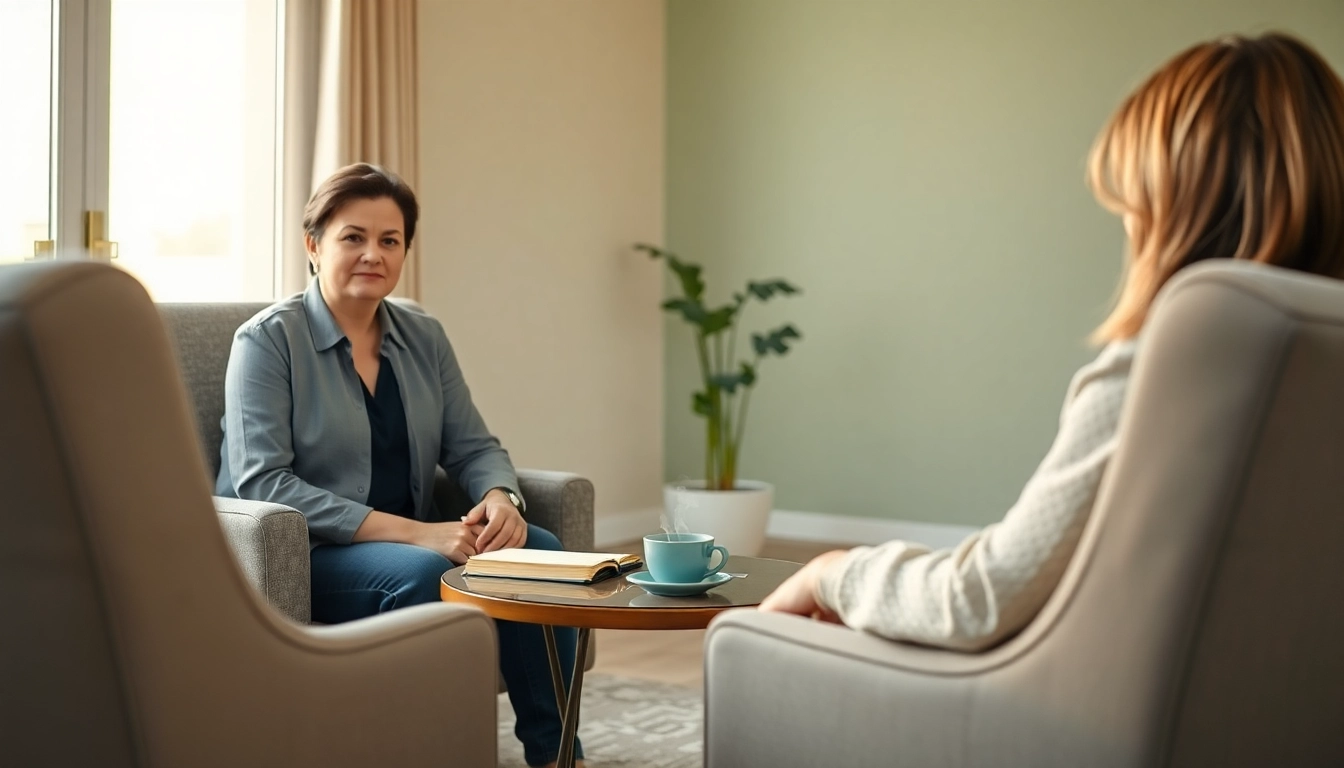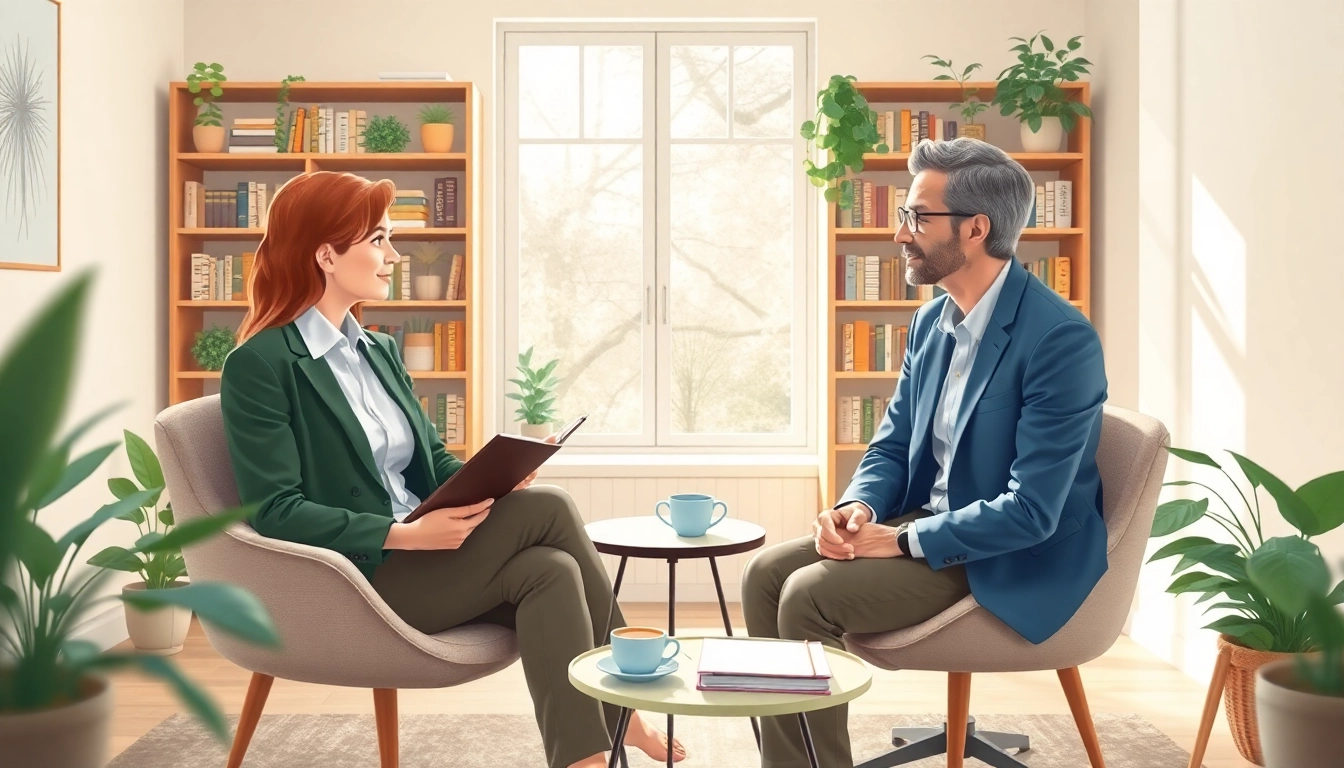Understanding Anxiety
Anxiety is a common and often overwhelming feeling that everyone experiences at some point in their lives. For many people, anxiety can become a persistent issue that interferes with daily activities and overall quality of life. It’s crucial to grasp the concepts around anxiety to understand it better and effectively manage dealing with anxiety. This article aims to provide a comprehensive understanding of anxiety, practical tips for management, cognitive-behavioral strategies, and the importance of professional help.
Definition and Types of Anxiety Disorders
Anxiety disorders encompass a range of mental health conditions characterized by excessive fear, worry, or anxiety. The most common types of anxiety disorders include:
- Generalized Anxiety Disorder (GAD): Characterized by chronic and unrealistic worry about everyday issues.
- Panic Disorder: Involves recurrent panic attacks, which are sudden periods of intense fear and discomfort.
- Social Anxiety Disorder: Marked by an excessive fear of social interactions and being judged by others.
- Specific Phobias: Intense fear of specific objects or situations, such as heights or spiders.
- Obsessive-Compulsive Disorder (OCD): Characterized by unwanted, persistent thoughts (obsessions) and repetitive behaviors (compulsions).
- Post-Traumatic Stress Disorder (PTSD): Can develop after exposure to a traumatic event and encompasses flashbacks, severe anxiety, and uncontrollable thoughts about the event.
Common Symptoms and Triggers
Recognizing anxiety symptoms is vital in management. Common symptoms of anxiety disorders include:
- Restlessness or feeling on edge
- Fatigue
- Difficulty concentrating or mind going blank
- Muscle tension
- Sleep disturbance
- Irritability
- Physical symptoms like heart palpitations, dizziness, or breathlessness
Triggers for anxiety can vary widely from person to person. They may include specific situations, such as public speaking or job interviews, or can be more generalized, encompassing life changes, illness, or overwhelming stress.
Impact of Anxiety on Daily Life
Anxiety can significantly impact various facets of life, including personal relationships, educational performance, and work productivity. Those suffering from anxiety often find it difficult to engage in everyday activities. Coping with anxiety in social situations may lead to avoidance behavior, isolation, and a break from typical routines, which can further exacerbate the condition. It’s critical to engage in dealing with anxiety through effective management strategies to restore a healthy balance in life.
Practical Tips for Dealing with Anxiety
Relaxation Techniques and Mindfulness
Relaxation techniques can provide immediate relief from anxiety symptoms. Some effective strategies include:
- Deep Breathing Exercises: Focusing on slow, deep breaths can help calm the nervous system. Practicing deep breathing for just a few minutes can significantly reduce anxiety levels.
- Meditation: Mindfulness meditation encourages individuals to stay grounded in the present moment, reducing rumination and anxiety. Apps and online resources can guide beginners through meditation sessions.
- Progressive Muscle Relaxation: This technique involves tensing and then relaxing different muscle groups in the body, helping to physically release tension that can accompany anxiety.
- Visualization Techniques: Imagining a peaceful scene can distract from anxious thoughts and promote relaxation.
Healthy Lifestyle Choices
Maintaining a healthy lifestyle can create a solid foundation for managing anxiety. Here are important lifestyle choices that can help:
- Regular Exercise: Engaging in physical activity releases endorphins, which can improve mood and reduce stress. Aim for at least 30 minutes of exercise on most days for its mental health benefits.
- Nutritious Diet: Eating a well-balanced diet rich in whole foods, fruits, and vegetables can promote overall well-being. Avoid excessive caffeine and sugar, which can exacerbate anxiety symptoms.
- Sleep Hygiene: Prioritizing good sleep practices can drastically improve mood and anxiety. Aim for 7-9 hours of quality sleep per night and create a calming bedtime routine.
- Avoidance of Substance Abuse: Reducing or eliminating alcohol and recreational drugs can help stabilize mood and minimize anxiety levels.
Social Support and Its Importance
Having a support system is paramount when dealing with anxiety. Communicating openly with friends, family, or support groups can provide comfort and alleviate feelings of isolation. Here are ways to enhance social support:
- Open Communication: Share feelings and experiences with trusted individuals to foster understanding and compassion.
- Engage in Group Activities: Participate in social or recreational activities, which can help foster connections and provide a sense of belonging.
- Reach Out for Help: Don’t hesitate to ask for assistance when feeling overwhelmed. Understanding that it’s okay to seek help is a crucial aspect of managing anxiety.
Cognitive Behavioral Strategies for Dealing with Anxiety
Understanding Cognitive Behavioral Therapy (CBT)
Cognitive Behavioral Therapy (CBT) is a highly effective method for treating anxiety disorders. CBT focuses on the connection between thoughts, feelings, and behaviors, helping individuals understand how their thought patterns contribute to anxiety. Through CBT, individuals can learn to:
- Identify and challenge irrational thoughts
- Develop coping strategies to manage anxiety
- Replace negative thinking patterns with more balanced and positive ones
Identifying Negative Thought Patterns
Recognizing negative thought patterns is an essential step in managing anxiety. Common cognitive distortions include:
- Catastrophizing: Assuming the worst possible outcome will happen.
- Black-and-White Thinking: Viewing situations as all good or all bad with no middle ground.
- Overgeneralization: Making broad conclusions based on a single event.
By identifying these patterns, individuals can begin to rationalize their thoughts and replace them with more accurate and helpful views.
Practical Exercises to Challenge Anxiety
Implementing practical exercises can strengthen the skills learned through CBT. Some exercises to consider include:
- Thought Records: Maintaining a journal to document negative thoughts and replacing them with more accurate statements can aid in reframing perceptions.
- Exposure Therapy: Gradually facing fear-inducing situations in a controlled manner can reduce anxiety over time.
- Gratitude Journaling: Writing down three things you are thankful for each day can shift focus away from anxiety and foster positivity.
Utilizing Professional Help for Dealing with Anxiety
When to Seek Professional Assistance
Recognizing when to seek professional help is vital for effective anxiety management. Consider consulting with a mental health professional if:
- Anxiety interferes with daily life and responsibilities.
- Physical symptoms persist or worsen.
- Struggles with coping lead to substance abuse or self-harm.
- Feelings of hopelessness or worthlessness emerge.
Types of Mental Health Professionals
Various mental health professionals can assist in managing anxiety, including:
- Psychologists: Specialize in diagnosing and treating mental health conditions, often using therapy techniques like CBT.
- Psychiatrists: Medical doctors who can prescribe medication for anxiety and provide therapy.
- Clinical Social Workers: Support individuals through counseling and can assist in connecting them to necessary resources.
- Licensed Professional Counselors: Provide therapy services and offer specific strategies for managing anxiety.
What to Expect from Therapy Sessions
Therapy sessions can be a safe space to explore feelings and develop coping strategies. Expect the following during therapy:
- Confidentiality and a non-judgmental environment.
- Discussion of personal experiences and feelings related to anxiety.
- Development of actionable strategies tailored to individual needs.
- Regular assessment of progress and adjustment of treatment plans as needed.
Long-term Management Strategies for Dealing with Anxiety
Establishing Routines and Consistency
Building a structured routine can help promote a sense of control and reduce anxiety over time. Tips include:
- Creating a structure for daily activities, including work, exercise, and relaxation.
- Incorporating consistency in sleep patterns, meal times, and social activities.
- Setting realistic goals and breaking tasks into manageable parts.
Tracking Progress and Changes
Monitoring progress is critical in understanding the effectiveness of strategies used in managing anxiety. Consider keeping:
- A mood journal to track feelings and triggers.
- Regular check-ins with a therapist to evaluate progress and make necessary adjustments.
- Utilizing apps or tools that remind you to practice relaxation and mindfulness techniques.
Self-care and Ongoing Support
Engaging in self-care practices is essential for long-term anxiety management. Some self-care strategies include:
- Participating in hobbies that bring joy and relaxation.
- Practicing gratitude and positive affirmations.
- Continuing to engage in supportive social networks.
Long-term management requires commitment, but with the right strategies and support, individuals can learn how to navigate their anxiety effectively.















Leave a Reply